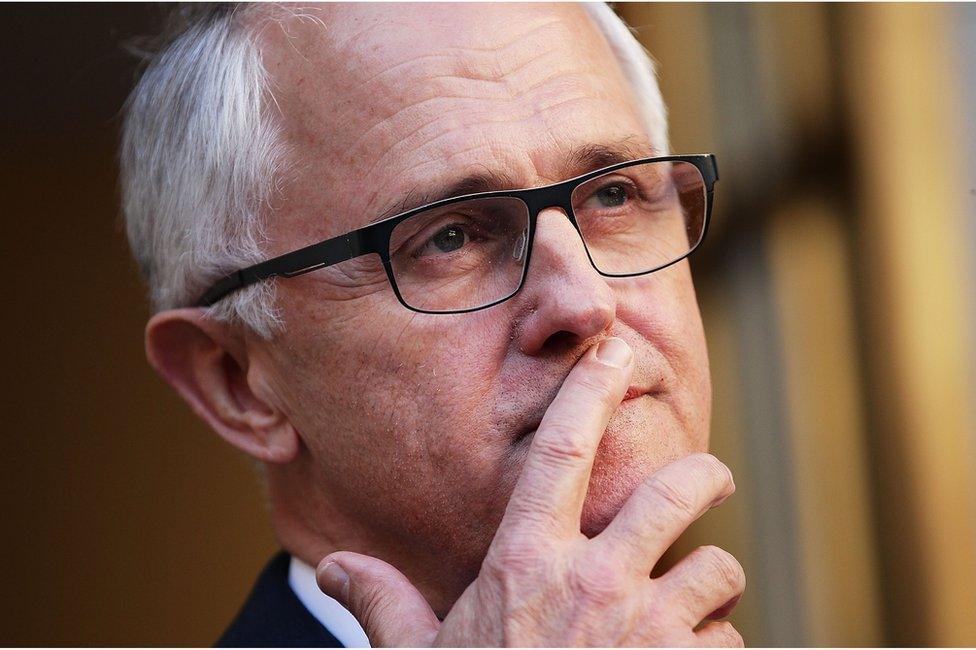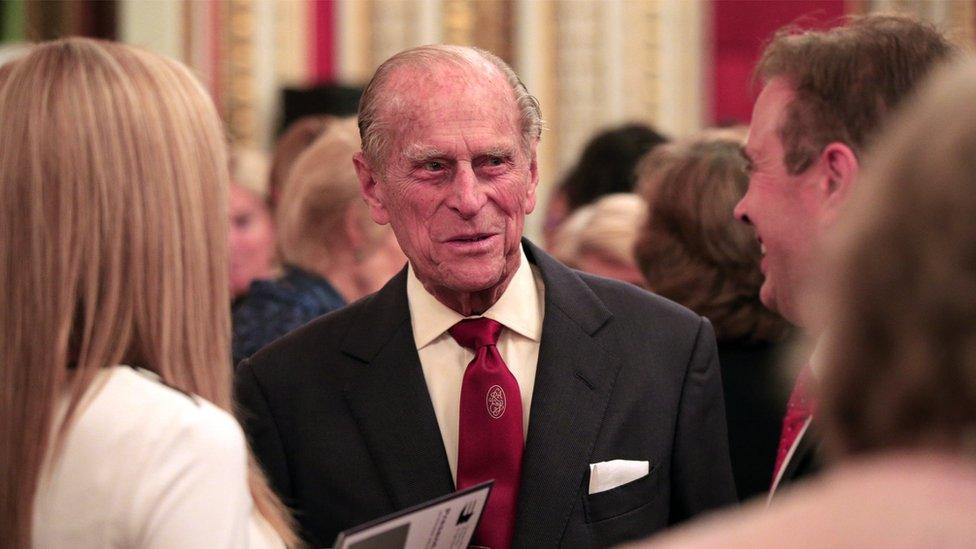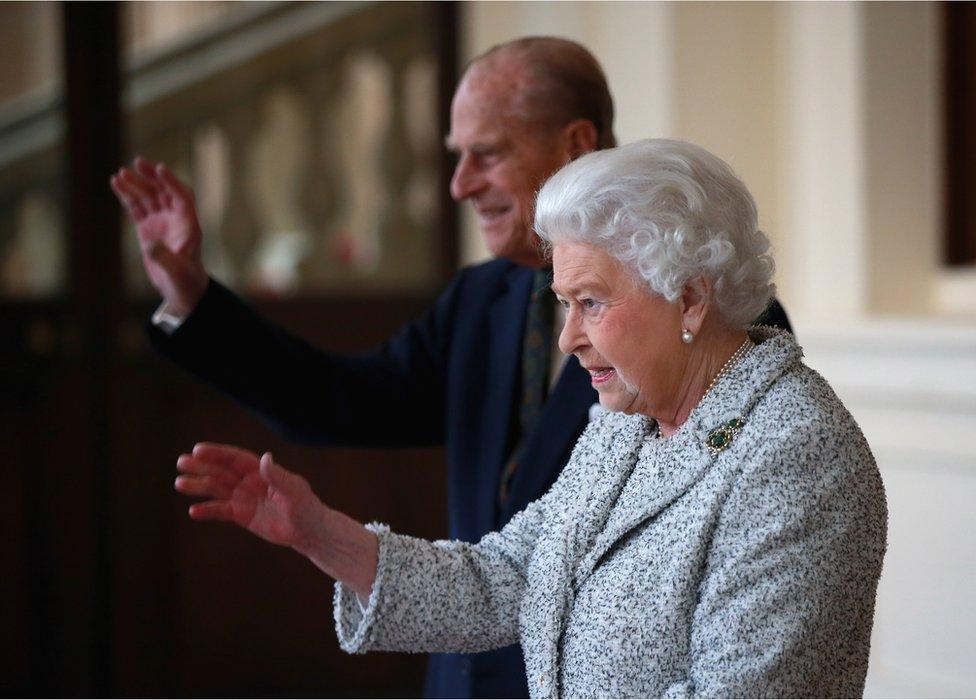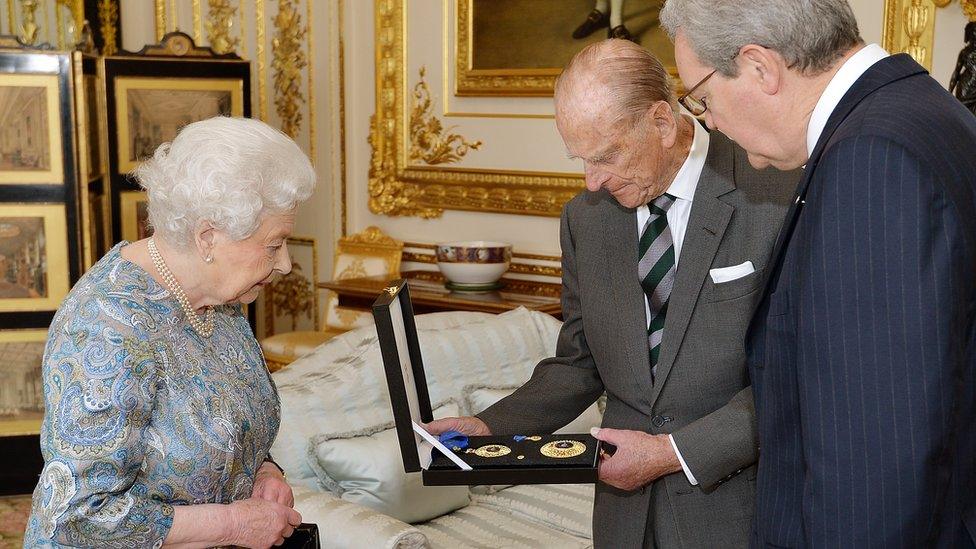End of 'Knightmare' poses republican question
- Published

Mr Turnbull is known to be a committed republican
"Knightmare", as it became known, was arguably the beginning of the end for Australia's former prime minister and staunch monarchist Tony Abbott.
The "captain's pick" decision - in other words: "I won't bother consulting with anyone else" - to award Prince Philip an Australian knighthood in January this year was about as popular as a Polly Waffle, external in a public pool, as they say in these parts.
The move was widely panned by the public, as well as amongst his own cabinet, and within a few weeks Mr Abbott was facing a leadership challenge that, although initially unsuccessful, eventually concluded with his ousting in September.
Now, the new Prime Minister Malcolm Turnbull, who one suspects doesn't see eye to eye on much with his predecessor, has wasted little time in abolishing the policy of awarding knights and dames.
In a statement, external, Mr Turnbull's office said the awards were not appropriate in a modern honours system.
Prince Philip will get to keep his title, amongst the seventy-odd others he already holds., external
But as things stand, his Royal Highness the Duke of Edinburgh, Royal Knight of the Most Noble Order of the Garter, Grand Master and First Principal Knight Grand Cross of the Most Excellent Order of the British Empire, Extra Knight of the Most Noble Order of the Thistle, Knight Grand Cross with Chain of the Order of the Queen of Sheba, Knight of the Order of the Elephant etcetera etcetera (excuse me while I put the kettle on) will be among the last Australian knights.

Prince Phillip has more than 70 titles
Mr Turnbull's move will likely go down well with the Australian public.
But it also raises interesting questions about this country's future as a constitutional monarchy.
Government priority?
Unlike Mr Abbott, Malcolm Turnbull is a committed republican.
A former chair of the Australian Republican Movement, he led the unsuccessful 1999 referendum campaign to abandon the monarchy and establish a republic.
Following the referendum defeat, he accused the then prime minister and fervent monarchist John Howard of "breaking the nation's heart".
Many have wondered whether now in power, he might once again pursue another public vote on the establishment of a republic.
Just two years ago, Mr Turnbull was advocating a nationwide online plebiscite, external to address the issue ahead of a possible second referendum.
But since ousting Tony Abbott in September's leadership coup, the Prime Minister has stepped back from that position.
While saying he remains a firm republican he has made clear, external that he does not see the issue as a priority for his government.
He certainly wouldn't want to have a referendum and lose again. And polls show at the moment that is likely what would happen.

The monarchy is still popular with some Australians
One survey last year, external showed support for a republic at a 20-year low with just 39% of people favouring abandoning the monarchy.
There seems absolutely zero chance of a referendum before the next election due in just under a year's time.
But who knows? If Malcolm Turnbull wins in 2016, he may want to return in his second term to an issue he has long felt passionately about.
Also public opinion might change, if Prince Charles were to come to power.
The Queen will celebrate her 90th birthday next year.
All these matters might make for interesting, if a little awkward, after-dinner conversation when Prince Charles makes a royal visit to Australia later this month.
Certainly if it were Prince Philip visiting, instead of his son, you might imagine him asking: "So Mr Turnbull, I hear you are a Republican and don't approve of my knighthood?"
- Published2 November 2015
